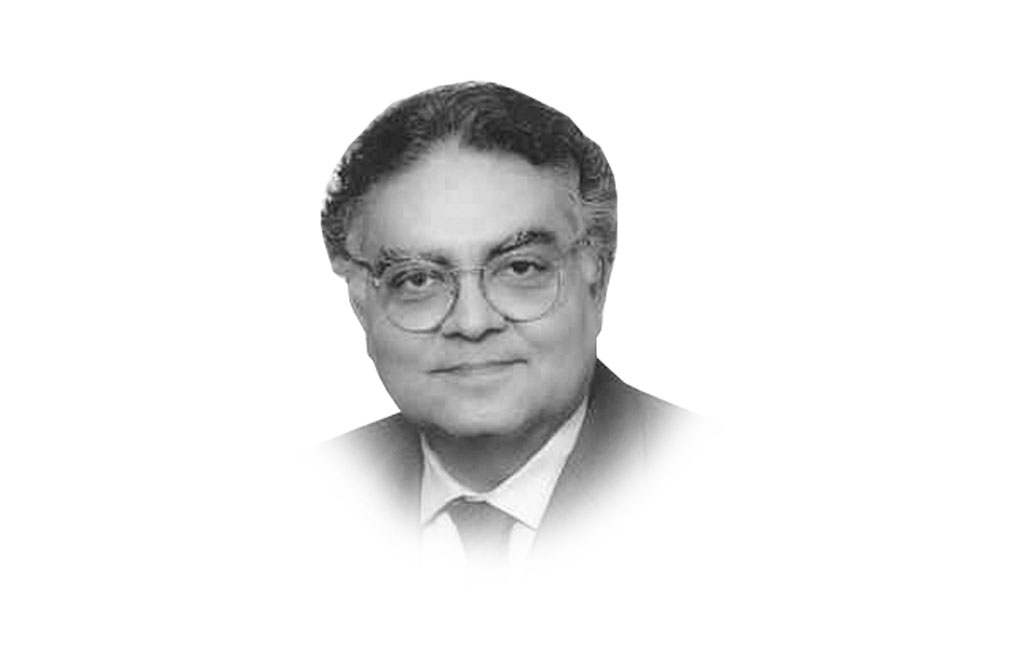
Any political system which is associated with an economic structure in which the injustice of mass poverty is endemic, which is incapable of providing the basic services required for a dignified existence to the majority of the people, where governments combine rapacity with corruption and where widespread violence prevails unchecked, will essentially be unstable. How can democracy be deepened and the economy restructured to make the functioning of both meaningful for the people?
Deepening democracy will mean making political institutions inclusive, whereby power that is currently restricted to an elite coalition is broadened to include the middle classes and the poor. This will involve changes through which classes at present excluded can find a voice in the provincial and national legislatures. Beyond this devolution, reforms need to be undertaken whereby elected representatives of the people are empowered to govern at the local level. To prevent elite takeover of local governments, there should be an institutionalised linkage between organisations of the poor and every tier of local government at the district, tehsil and union council levels. The underlying principle here is that there should not merely be a decentralisation of administrative function but the devolution of power. The poor should be enabled to systematically participate in governance decisions that affect their economic social and environmental conditions: this means institutionalised participation in decisions regarding local resource allocation, project selection and implementation and monitoring. Such political reforms will make democracy not only representative but will involve the participation of the people in the actual functioning of governance. It will be government by the people.
At the level of the economy, there are urgent problems of declining investment, low domestic savings, inadequate export earnings and slow growth with the consequent difficulty of low government revenues. These problems are rooted in an institutional framework that restricts investment and high wage employment to the elite and generates directly unproductive rents for it by restraining competition. Consequently, there is low efficiency, low productivity, lack of innovation with a consequent inability to generate adequate exports and sustain GDP growth. To achieve sustained economic growth and rapid poverty reduction, it is necessary to shift from rent-based exclusive institutions to inclusive economic institutions. This requires broadening the base of competition, innovation, savings and investment whereby the middle classes and the poor can get access to quality education, skills, access to credit and productive assets. The inclusion of the middle classes and the poor in the process of investment, innovation and productivity increase will generate a higher and more sustained GDP growth that is based on equity. It will be growth for the people, by the people. Such an economic democracy could become a vital underpinning for the endeavour of sustaining democracy.
Apart from politics and economics, you cannot have a democracy without a democratic culture. The sensibility of tolerance and the use of logical argument rather than violence to make a point is an essential feature of democracy. The necessary condition for this is a dramatic improvement in both the budgetary allocation for education and the organisational mechanisms for converting finance into outcomes.
Published in The Express Tribune, February 4th, 2013.
COMMENTS (6)
Comments are moderated and generally will be posted if they are on-topic and not abusive.
For more information, please see our Comments FAQ

1731570357-0/elon-musk-(1)1731570357-0-165x106.webp)
-(1)1717678110-0/Kendrick-(1)-(1)1717678110-0-165x106.webp)









@Nazim:
Your figures are very old.
I agree with you qualitatively. But quantitatively, figures are : (Source : Britain's Department for Internmational Development)
In absolute terms, 41.6 per cent of India's 1.1 billion people earned less than 78 pence per day compared with 22.6 per cent of Pakistan's 173 million.
In multi-dimensional poverty terms, 53.7 per cent of Indians suffer from broader kind of poverty, compared with 49 per cent of Pakistanis.
These figures are surveyed for year 2009 and published in 2011.
The multi-dimensional poverty terms figure, is reversed in 2012 and turned in India's side and absolute terms figure gap is bridged a lot.
After 2013, no figure from any International Agency will support your claim.
@Nazim: If I were you, I would not take Amb. Hilaly too seriously! Look at World Bank figures instead, or if you want to be quick look at the Gini coefficient,
My dear Mirza saheb, india is still suffereing from exrreme poverty as 900 million of its 1200 million is earning below Rs 20/- per capita and 1% of the total popualation commands about 90% of state's resources.
You wrote "Any political system which is associated with an economic structure in which the injustice of mass poverty is endemic, which is incapable of providing the basic services required for a dignified existence to the majority of the people, where governments combine rapacity with corruption and where widespread violence prevails unchecked, will essentially be unstable." A huge and resource rich country like the US had democracy since 1776. Yet it was not till after WW II that the poverty of great depression was eliminated. India was democracy since 1947, yet it was not until mid 1990's that the common people started seeing the benefits of democracy. We have not even gotten over one term of one elections and are talking as if there was a magic lamp that failed. Pakistan is what it is despite Islamic culture and now democracy not because of it. Let us not talk about 19 and 90 days without a plan and where would you make cuts in the budget to increase in education and public services?
How can one expect democratic behaviour / qualities from a nation where the literacy rate dwindles between 16 to 18 percent and where people are not ready to accede your right of way on the roads.
You Sir have clearly defined how democracy should work for the good of the many. The dilemma is how to get 'the few' who benefit greatly from the system as it presently stands to change, so that 'the many' would benefit.